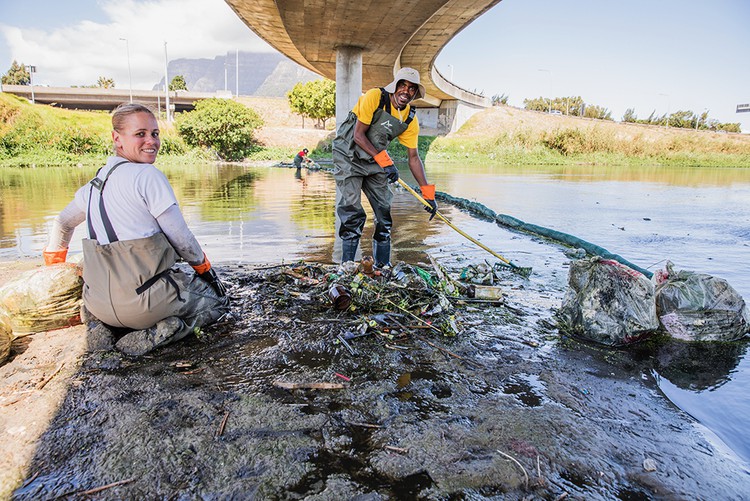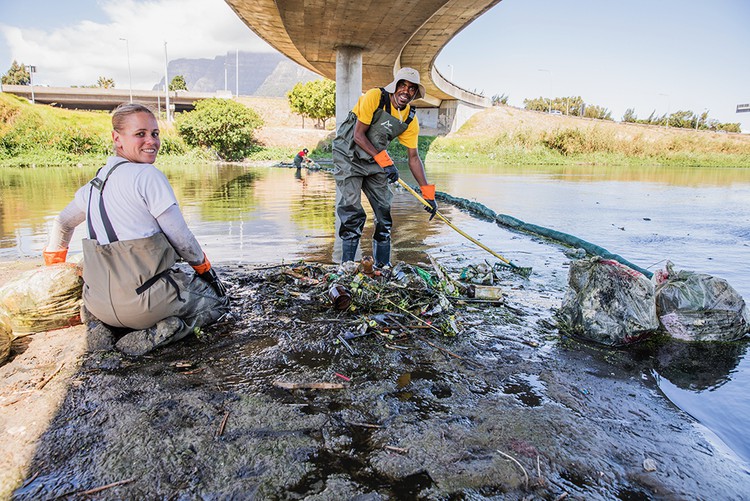
Small Organisation Fighting Pollution in Cape Town Rivers: Things CAN Be Fixed
“Things often just look like they’re falling apart and there can be a lot of finger pointing and blaming. But Help Up has opened up people’s imagination to the fact that things can actually be fixed if everybody gets involved,” says Georgia McTaggart, founder of a small and growing river cleanup initiative called Help Up. […]

“Things often just look like they’re falling apart and there can be a lot of finger pointing and blaming. But Help Up has opened up people’s imagination to the fact that things can actually be fixed if everybody gets involved,” says Georgia McTaggart, founder of a small and growing river cleanup initiative called Help Up.

The non-profit organisation started in July 2018 and recently celebrated 52 weeks of cleaning up the Black River in Mowbray.
The organisation also started cleaning up the Langa canal 15 weeks ago, and is looking to expand to more places in Langa and to Khayelitsha.
According to McTaggart, Help Up has collected about 80 tons of waste, stopping it from going into the ocean. It has provided work to over 330 people. The Help Up team consists of homeless and unemployed people who are paid for their work, alongside many volunteers.
“People dump trash and building waste alongside canals, which flows downstream. Most of what we collect is household waste from the informal settlements upstream,” says McTaggart.
“Packaging is the problem. The cheaper the product, the less the likelihood that there will be a recyclable opportunity for that packaging,” she said.
Much of the rubbish collected is coated with human sewage due to pollution in the rivers, which makes it difficult, if not impossible, to recycle due to the high levels of E. coli bacteria.
The Western Cape Solid Waste Department collects the bags of waste from the Help Up cleaning sites.
“We all have household waste,” McTaggart says. She explains that better-off households have the capacity to recycle because their recycling is collected. “But most people who live in poverty don’t have access to those types of services. There are municipal pickups of trash, but not for the volume that is actually being created.”
Help Up has also developed an app called “Franchises Are Free” to be released in April. The app provides short-term cleaning contracts and allows members to form their own cleaning teams.
There will also be a function on the app that will allow anybody to log their cleanup. This will also be available to students who need to perform 16 hours of community service as part of the National Education Curriculum, says McTaggart.
Published originally on GroundUp | © 2020 GroundUp